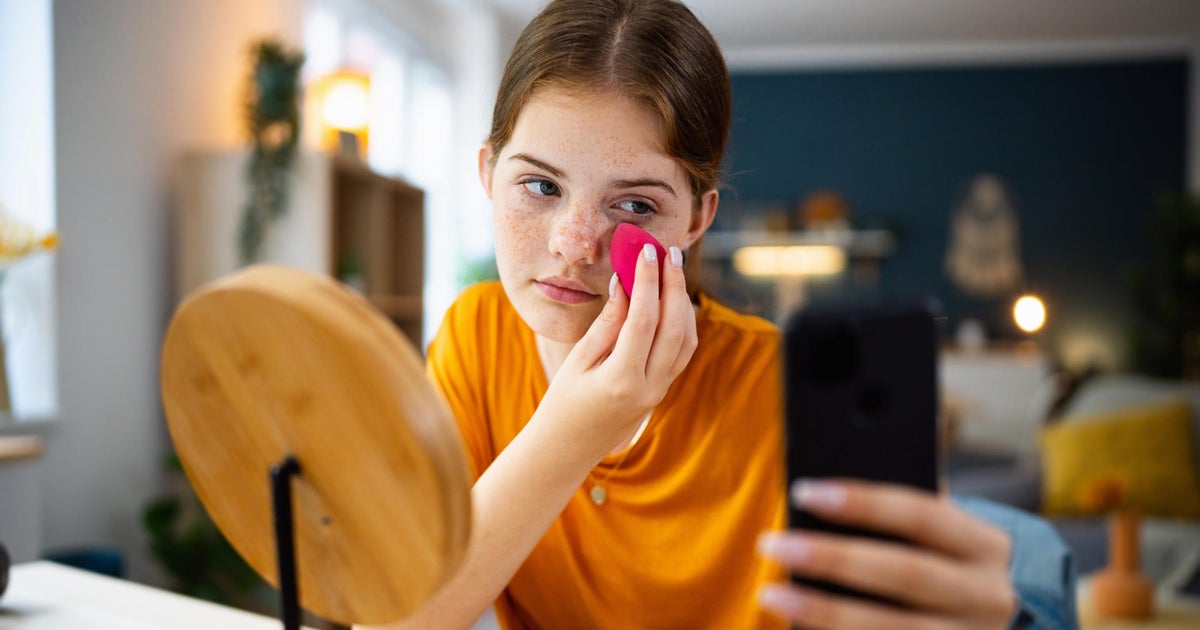At-home COVID tests are a free, easy part of everyday life in the U.K., and the U.S. has taken note
London — Rapid COVID-19 testing at home could soon be a reality in the U.S. The White House has a billion-dollar plan to make over-the-counter tests more readily available. They're currently very difficult to get in the U.S., but as CBS News correspondent Charlie D'Agata reports, that's not the case in Britain.
Bea Banks and her school friend Izzy Rivers are perfectly healthy teenagers. But like a lot of students across England, they test for COVID-19 twice a week.
Why?
"Because if it comes back positive, then you've got to stay at home," explained Bea. "If you don't test, you'll never know that you actually have it, and then by that time it'll be too late, and you'll infect other people."
At-home testing has become as routine in the U.K. as brushing your teeth and packing your books for school. Bea and Izzy had no idea things were so different across the Atlantic.
"I think it's really weird!" said Izzy. "I guess, like, I wouldn't feel less safe going to school. But I'd feel more worried… you wouldn't know if anyone had it."
Getting the test kits couldn't be easier. They're readily available at pretty much every pharmacy in the country. Anyone can just walk in and ask for them – and they're completely free, usually distributed in boxes of five or seven. You can go back and get as many as you need.
If you can even find one in the U.S., they're generally $12 - for a single test.
The kits contain rapid antigen tests, which can identify about 98% of infectious COVID-19 cases. With similar programs rolled out elsewhere in Europe, they have helped to slow the spread of the virus right across the continent.
"This is a really good extra tool in our kit to fight COVID," Professor Tim Spector of King's College London, one of the U.K.'s leading epidemiologists, told CBS News. "It reassures people, it's easy to do… it's not perfect by any means, but it just gives you extra knowledge. You know if you are testing negative all the time that you are safe."
Spector helped create an app in the early days of the pandemic that millions of Britons downloaded to self-report suspect symptoms. The data collected through the "Zoe" app has revealed that the coronavirus can be deceptive, and that makes the rapid home testing all the more vital.
"The top-four symptoms at the moment in the U.K. with people with a positive test are cold-like symptoms," including headache, sore throat, runny nose and sneezing, Spector said. "They are not the classic symptoms [of COVID-19]. So how do you know if you've got COVID or you've got a cold? Take a test - and do that before you go and infect 20 other people."
The FDA announced last week that it would allow the sale of similar antigen tests in the U.S., and the White House has pledged that 200 million rapid at-home tests per month will be made available starting in December.
In Britain, they're not just for schools. Organizers of everything from weddings to sports events have asked guests to test, and with several holidays on the horizon, parents may seek the added reassurance before playing host or sending their kids into crowded social events.
"I went to the theater last week and they asked us to test for that," British mom Ruth Banks told D'Agata. "Occasionally a hockey club - I play hockey, so they'll ask: 'Please can you test before you come and have tea at the social club?' So, quite regularly."
Spector stressed that the rapid tests are "just one part of the armory," and he worries when people suggest that any single weapon in the fight against COVID-19 could be a silver bullet. The only solution, he says, is to throw everything available – including the vaccines and measures like distancing and face masks at the fight.
It's "all these things together that really work," Spector said.
And the testing may soon be part of daily life in the U.S., too - just one more weapon to help stop the spread.
For American students or parents who think it may be weird to incorporate COVID self-testing into their routines, Izzy offered the following advice:
"It seems like such a big thing, shoving a thing up your nose and down your throat, but it's not that bad. You do it and then it's done."
A little bit of discomfort is a small price to pay so everyone can rest just that little bit easier.



